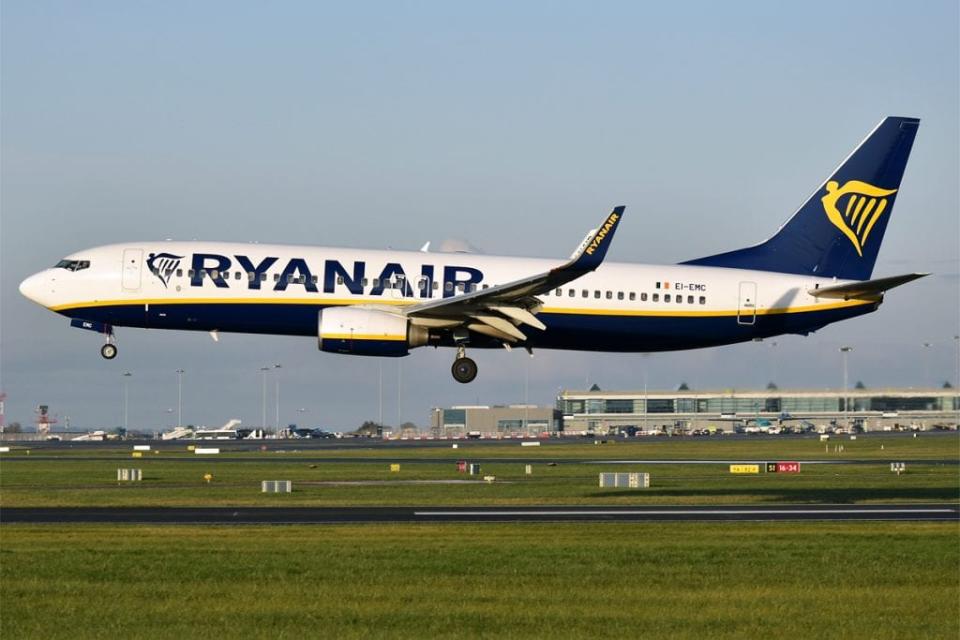Why Ryanair Still Doesn’t Need to Be Loved

When Chief Marketing Officer Kenny Jacobs helped launch Ryanair’s customer service-focused Always Getting Better campaign back in 2014, he said he wanted to make the airline “as liked as we are useful.”
And while the Irish carrier isn’t immune from criticism, some of the harder edges have undoubtedly smoothed out during his tenure. Jacobs won’t, however, be around to take part in the next stage of Ryanair’s evolution. He announced earlier this year that he is leaving to take time off over the summer before looking for a new challenge.
Jacobs is departing on good terms — not always the case with Ryanair executives — and group CEO Michael O’Leary thanked him for championing “many of the successful customer service improvements we have launched in recent years.”
The company is certainly very different in lots of ways to the one Jacobs joined back in 2014. It’s now an airline group with an appropriate structure after it decided to pursue a rare acquisition in the form of Austrian airline Laudamotion.
While Ryanair has been busy adding brands, events outside of its control have thwarted its breakneck growth. The worldwide grounding of the Boeing 737 Max in the aftermath of two fatal crashes has left it with a temporary hole in its order book.
Skift Editor’s Note: This interview was edited for length and clarity.
Skift: Ryanair has switched its structure to include multiple sub-brands under the Ryanair name, e.g Buzz. Has it worked?
Kenny Jacobs: Yes, so far it has but the group structure is a small evolution and not a large acquisitional restructure like the multiple brands in IAG. As per our latest results, Lauda is loss-making (more than forecast), but this is due to the markets in which it operates and not the group structure. Over time Lauda should achieve a higher revenue per passenger than Ryanair and at a similar cost base.

Kenny Jacobs, Ryanair’s chief marketing officer. Photo: Ryanair
Skift: You were one of the forces behind the Always Getting Better campaign that helped to soften some of the edges at Ryanair. Has it helped change peoples’ view of the airline?
Jacobs: Ryanair’s Always Getting Better (AGB) has worked as both a campaign and an internal mantra in giving Ryanair a better focus on customers and innovation.
In the six years of AGB, the airline has doubled traffic, doubled profits, and increased load factor by 15 percent (to 97 percent) by attracting high-margin customer segments like business travelers and group bookings.
When we started AGB, the Ryanair net promoter score was -26, and today it is +21. This tells us that Ryanair customers prefer the Ryanair of today to the Ryanair of six years ago. Ryanair will always be a functional brand that delivers value, on-time performance (OTP), and the best route network in Europe — get that right with great consistency, and the formula works.
Skift: Do you still spend nothing on Google?
Jacobs: We are very proud of the fact we are the world’s most-visited airline website with over 1 billion unique visits annually (with 94 percent direct visits), and we achieve this with zero spend on Google advertising or any other paid search engine.
Our marketing cost per passenger is an industry-leading €0.9c ($0.98).
Skift: How much of an impact is the grounding of the Boeing 737 Max having on Ryanair’s growth plans?
Jacobs: We had originally planned to carry 162 million passengers in 2021 (year end March 31, 2021), but due to the continuous delays of the group’s first Boeing 737 Max 200 aircraft, this expected growth has been cut to 156 million (under 2 percent).
It is now likely that our first Max aircraft will not deliver until September or October 2020. The requirement for Max simulator training will also slow down the delivery of backlogged aircraft and new deliveries. But we believe that these game-changer aircraft (with 4 percent more seats, burn 16 percent less fuel), when delivered, will transform our cost base and our business for the next decade.
Due to these delivery delays, we won’t see any of these cost savings until late full-year 2021. As a direct result of these delivery delays, we plan to extend our 200 million per annum passenger target by at least one or two years to full-year 2025 or full-year 2026.
Skift: Do you still think Ryanair could and should be the “Amazon of travel”? If so how are you working toward this?
Jacobs: Yes — but it’s not the only thing. We also said we would have a faster, data-driven retail website, and we have achieved that with our latest website and app.
Skift: Beyond being the cheapest, is there any other way to keep Ryanair customers loyal?
Jacobs: Yes — on-time performance, be reliable, focus, and don’t mess customers about.
Be unbeatable on price, on-time performance, and a straightforward service and customers will fly with you — they won’t love you, and they don’t need to. Let them love travel: The airline should be a functional facilitator of that.
Subscribe to Skift newsletters for essential news about the business of travel.

